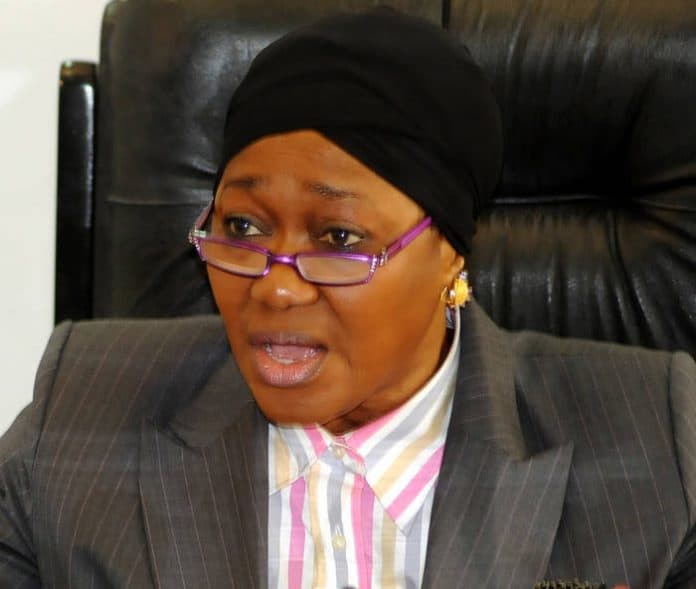Farida Waziri pronounces Goodluck Jonathan guilty

Farida Waziri
Somewhere out there, right now, is one rich and powerful Nigerian. We do not know how he made his money, but we have it on some authority he was one of the chieftains of the fuel subsidy scam.
That chapter, you might remember, almost brought down the Goodluck Jonathan government in January 2012.
During that time, Jonathan, like every pretentious Nigerian leader passing through the pages of history, was ‘combating’ corruption. At the helm of the Economic and Financial Crimes Commission (EFCC), was one Farida Waziri, a former policewoman.
Waziri was notorious for her dubious background and for her duplicity. During her tenure, I detailed in this column her unsuitability for the job, including conflict of interest issues.
And then, once she took office, she tried to remodel the EFCC, including removing the top 10 officers who had handled such important case files as those of Bukola Saraki and James Ibori. One of them was a thorough and respected officer known as Ibrahim Magu, who had led the Economic Governance Section and Presidential Task Force. Waziri had him arrested, detained, suspended from the police, and exported to Ekiti State.
A fluent liar, she attempted to justify her actions, saying she was hunting for “vital documents” concerning sensitive EFCC cases, and that the files of the governors facing prosecution were either missing or distorted. Not true: one of Mr. Nuhu Ribadu’s strengths had been his digitisation of information and offshore storage.
Trying to ward off public opprobrium, Waziri also lied that the EFCC did not have any public petitions against former President Olusegun Obasanjo. She has a master’s degree in law, but not in History: in November 2007, the Coalition Against Corrupt Leaders had publicly filed one at the EFCC’s Ikoyi office; and days later on December 10, the Conference of National Political Parties also publicly filed another, acknowledgement by the EFCC in a letter dated December 24, 2007.
Waziri did many other dastardly things for which she earned a large accumulation of petitions, but for some reason, Mr. Jonathan ignored them all, setting the EFCC chairperson free to travel, spend money and make speeches.
In reference last week to losing that plum job, she declared the EFCC had been denied the freedom to do its work, suggested that her removal meant she was not part of “the alleged grand corruption” under Jonathan.
“I’m only glad that those things didn’t happen under my watch as EFCC chairman because it would have been too traumatic for me,” she declared. And that is why if I see ex-President Jonathan today, I will kneel down to thank him for the honour done me by removing me as EFCC chairman at the time he did.”
She spoke as though she was not the same person who, in an interview with the EFCC’s Zero Tolerance magazine in September 2013, two years after she had been sent home, complained that Jonathan had ‘humiliated’ her by the abruptness of his action.
But ‘grand corruption’? An oil subsidy ‘mastermind’?
This is how she said she got fired: “My first strong premonition of what was ahead was when I began the probe of the monumental oil subsidy fraud going on then. I came to Lagos on a vital intelligence on the subsidy scam and as soon as I arrested a key culprit, I got a call from the presidential villa asking me to release the suspect, because according to their words ‘he is our person’, but I refused to let him off and days after I was removed from office.”













No comments
Post a Comment